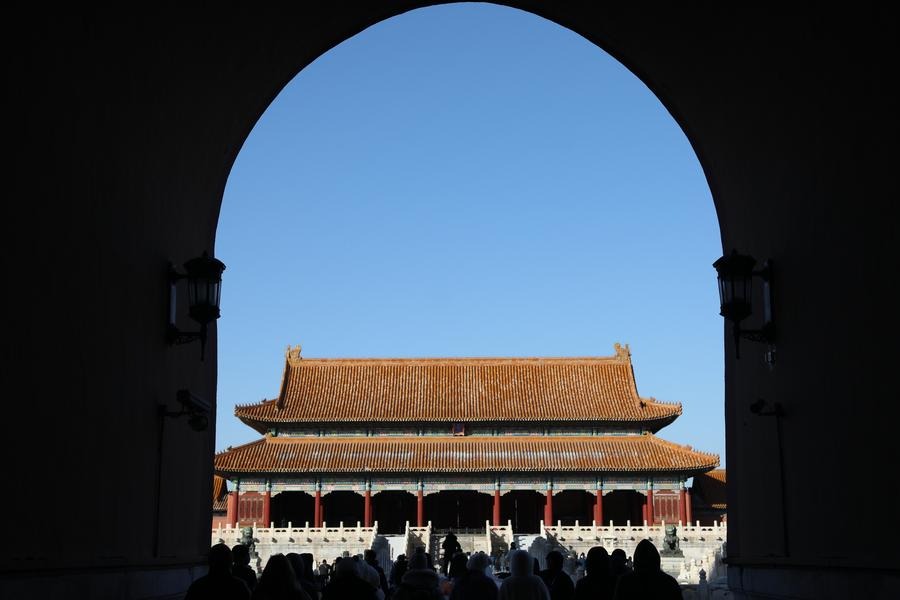China's private economy promotion law sets many historic 'firsts'


The Private Economy Promotion Law, passed at a session of the Standing Committee of the National People's Congress, will take effect on May 20. This is China's first dedicated single law aimed at promoting the development of the private economy.
The law consists of 9 chapters and 78 articles, establishing relevant institutional mechanisms across six key areas: fair competition, investment and financing promotion, scientific and technological innovation, standardized operations, service guarantees, and rights protection.
Throughout the entire text of the law, the terms "equality", "fairness", and "equal treatment" appear a total of 26 times, reflecting the principle of equality across all aspects and stages of work aimed at promoting the development of the private economy.
It codifies legal provisions that ensure equal treatment and equal protection for the private sector, continuously optimizing a stable, fair, and predictable environment for private economic development. This means many existing national policies supporting the growth of the private economy will now be elevated to long-term, stable legal safeguards.
This legislation marks several historic "firsts". It is the first time that the status of the private economy has been formally written into national law. It is also the first time that sustained, healthy, and high-quality development of the private economy has been established as a major long-term state policy, which represents a milestone in the development history of China's private economy.
The law emphasizes fair market competition, stipulating that a uniform national negative list system for market access will be implemented nationwide, along with the enforcement of fair competition review systems. All types of economic entities, including private enterprises, may legally and equally enter sectors not listed in the negative list — a significant step forward. It also ensures, by law, that private enterprises have equal access to production factors such as funds, technology, human resources, data, and land, as well as public service resources. Local governments at all levels and their relevant departments shall implement the fair competition review system. Policies and measures that affect the production and business activities of market entities must undergo a fair competition review, and should be assessed regularly.
In terms of investment and financing, the law supports private enterprises in investing and starting businesses in strategic emerging industries and future industries, and encourages them to carry out technological transformation and upgrading in traditional sectors. It states: "Banking and financial institutions shall accept guarantee methods that meet the requirements of loan business in accordance with laws and regulations, and provide private economic entities with loan services secured by accounts receivable, warehouse receipts, equity, intellectual property rights, and other forms of pledged assets." This is particularly important for small and medium-sized enterprises, which often face difficulties in obtaining traditional forms of credit.
Regarding scientific and technological innovation, the law mandates that major national research infrastructure be opened to private enterprises. It stresses "open sharing of public R&D platforms and common technology platforms, providing equal innovation services to private enterprises", which will significantly reduce private enterprises' costs of technological advancement.
To support informed decision-making and policy implementation, the law states: "China will establish and improve a private economy statistical system, conduct regular statistical analysis of private economic development, and periodically release relevant information." Making statistics publicly available allows various market entities to gain a clearer understanding of the overall market situation, enabling them to make more informed business decisions.
The introduction of the Private Economy Promotion Law marks a significant milestone in China's process of legalizing its economic governance, carrying profound implications for stabilizing market expectations and invigorating the private sector. By enshrining in law the equal status of private enterprises, this legislation institutionalizes guarantees for their fair participation in competition and access to resources, thereby optimizing the business environment.
More importantly, the law incorporates the protection of private enterprises' rights and interests into the legal framework, reinforces the government's responsibility in fulfilling commitments, reduces policy unpredictability, and provides businesses with stable expectations. At this critical juncture of economic transformation and upgrading, the law's support for innovation incentives and digital transformation will propel private enterprises toward advanced manufacturing, green economy, and other emerging sectors, strengthening the endogenous drivers of China's economy.
With the enactment of this law, legal stability will enhance development certainty, serving as a powerful driving force for the continued growth and prosperity of China's private economy.
The author is Zhao Chunzhe, associate research fellow with the China Center for International Economic Exchanges(CCIEE).
The views don't necessarily reflect those of China Daily.
If you have a specific expertise, or would like to share your thought about our stories, then send us your writings at opinion@chinadaily.com.cn, and comment@chinadaily.com.cn.

































